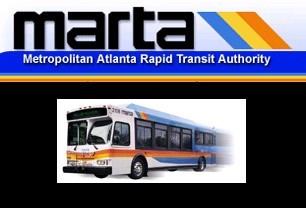The Metro Atlanta Rapid Transit Authority, known by its acronym MARTA, is grappling with falling revenues that were being predicted even before the U.S. economic downturn that is walloping transit authorities nationwide.
At its board meeting on Monday, the agency voted to approve budget cuts including nixing annual raises for managers, supervisors and general administrative employees and cutting back on discretionary spending moves intended to save the agency $11 million over the next fiscal year.
The agency estimates it will be down another $30 million by the end of its fiscal year in July. Local sales taxes account for more than half of MARTA's operating budget.
Last month, leaders from 11 transit agencies, including MARTA, warned Congress that despite soaring ridership for rail and bus systems, they could face at least $2 billion in payments in coming months if hundreds of long-term financing deals the agencies have with investors collapse amid the global credit crisis.
MARTA's ridership was up 5 percent in October from the same time last year, officials said.
MARTA's general manager, Beverly Scott, asked the board of directors on Monday to make cuts. In the upcoming legislative session, MARTA officials plan to ask state lawmakers to get rid of restrictions on how it can use its sales tax and investment earnings, and to allow eating and drinking at rail stations as a potential moneymaking opportunity.
Board chairman Michael Walls said the economy is only part of MARTA's financial woes, as the agency has failed to invest enough in infrastructure over the past two decades.
``We have fallen seriously behind our peers, and it has caught up with us,'' Walls said. ``We need to do everything that we can to favorably position MARTA ... for the national stimulus package being developed in Washington.''
A Georgia State University economic report estimates MARTA could see a decline of more than $633 million in sales tax revenue in the next 10 years. Local sales taxes account for more than half of MARTA's operating budget.
``If we do not immediately receive a significant infusion of funding from the state or another outside source, MARTA will have to take extremely drastic measures to survive our next fiscal year,'' Scott said in a statement.
On the Net:
MARTA: http://www.itsmarta.com

http://accesswdun.com/article/2008/12/216100
